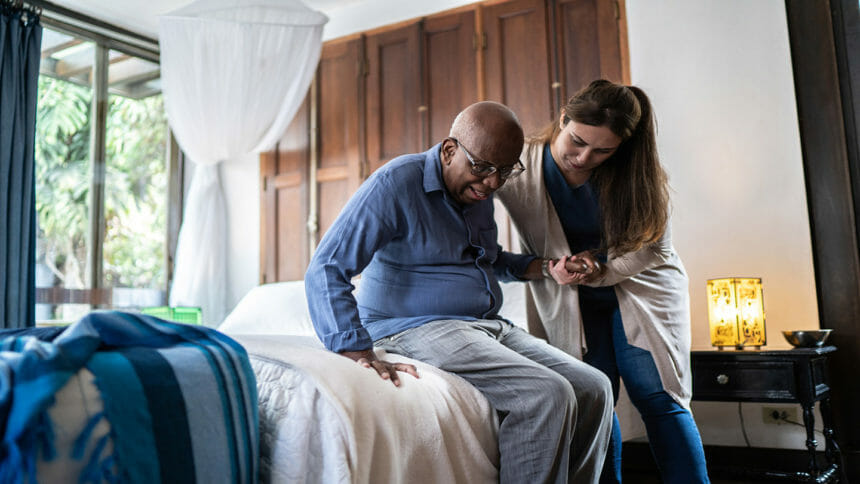
A panel of experts called for a new approach to Medicaid funding and long-term care services Monday during a virtual town hall sponsored by Yale Law School’s Solomon Center for Health Law and Policy.
Medicaid’s shift toward home- and community-based services is putting more of a burden on family and friends to provide caregiving, according to Allison Hoffman, deputy dean of the University of Pennsylvania’s Penn Carey Law School.
Hoffman said policymakers at the federal and state level need to re-center the conversation about long-term care around the unpaid caregivers providing and managing support, in addition to those who need it.
“It makes it more complex, but that is the reality of how caregiving happens,” Hoffman said. “It is complex and it’s about interactions between the people who need care and the members of their family and community that they turn to for care. I think recognizing that from when we create federal policy and state policy … would be beneficial especially to informal caregivers.”
Hoffman estimated more than 50 million Americans are providing up to $470 billion annually in unpaid care because Medicaid doesn’t can’t support increased demand for caregiver services. However that free service comes at a staggering cost to those unpaid caregivers. Hoffman said the average adult child providing care to a parent loses $300,000 in wages, benefits and lost job opportunities to provide that support.
Efforts to expand funding to HCBS stalled in the Senate late last year when the Biden administration’s Build Back Better initiative failed to garner enough Democratic support.
Finding policy solutions in Washington could become even more challenging if the House and Senate flip to a Republican-controlled majority in the upcoming midterm election. Republicans are more likely to favor tax credits and expanded family leave to help family caregivers, according to Howard Bedlin, government relations and advocacy principal at the National Council on Aging.
Still, Bedlin conceded Medicaid could find a friend in Rep. Cathy McMorris Rogers (R-WA) if Republicans gain control of the House. Rogers likely would lead the House Energy and Commerce Committee, which deals with Medicaid issues. Bedlin said Rogers has a disabled son and favors eliminating caregiver wait lists for Medicaid beneficiaries.
“We have shared comments with her and her staff about what we can do on a bipartisan basis,” Berlin noted.



